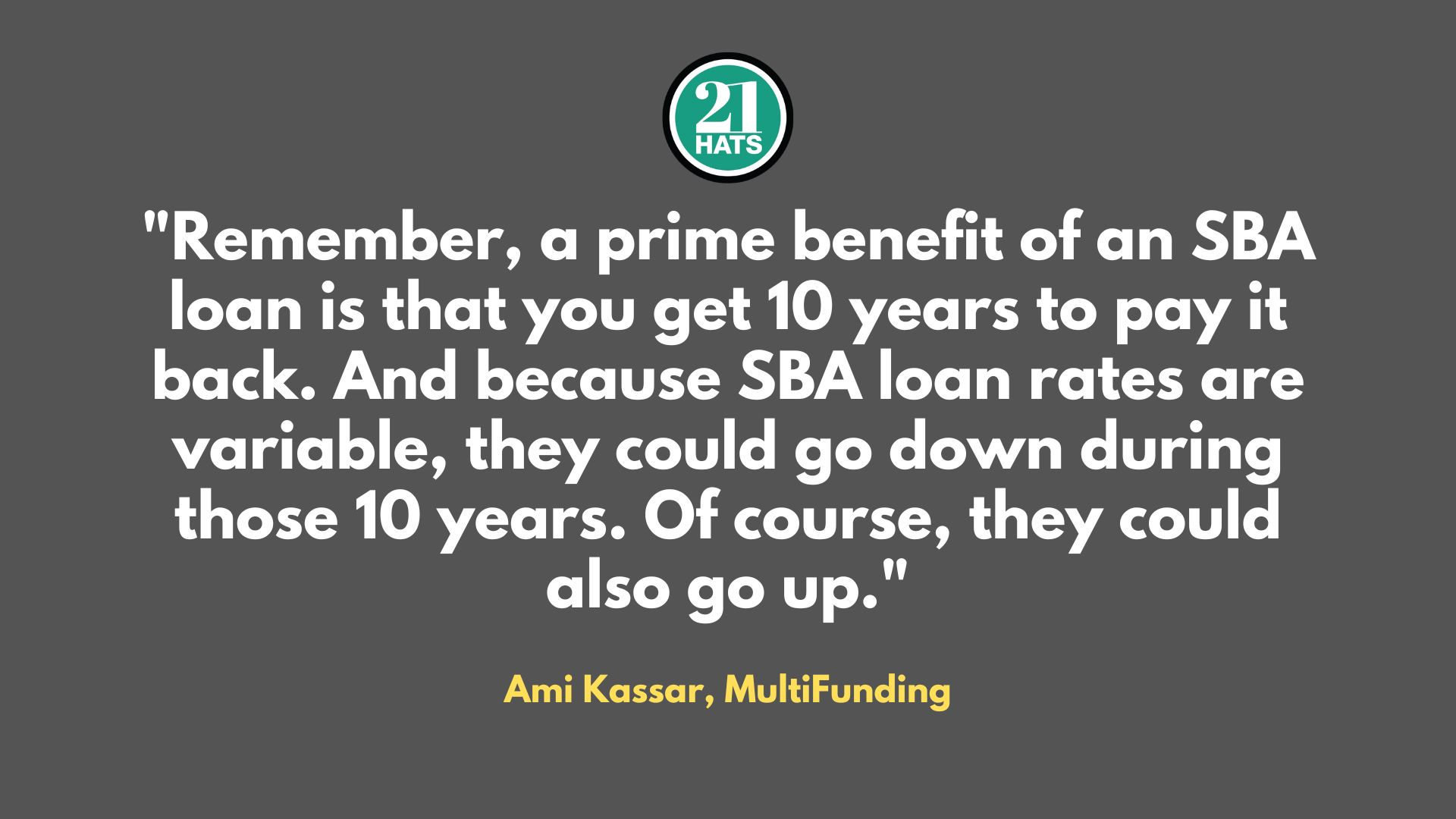Yes, Interest Rates Have Gone Up

That means capital is more expensive. But it doesn’t automatically mean the expenditures you were considering no longer make sense.
By Ami Kassar
My client was so excited when he called to tell me one of his top competitors was finally going to retire. He had his eye on this guy, who is in the same niche service business, for a long time, and now my client could make his move. And then I burst his bubble.
I didn’t mean to, but he panicked about what I told him. You see, interest rates on most SBA 7(a) loans without real estate have increased from 6 percent to 10.5 percent. This rate hike translates into a decent chunk of change over a year. At 6 percent, where the rate was a year ago, his monthly payments would have been $11,102. With the higher rate, they would be $13,354 – or an extra $27,024 over a year.
Yes, that’s a lot of money, but should it make him stop in his tracks? Not necessarily. There are several things to consider. First of all, he has been waiting a long time to make a move on his competitor, who happens to be taking home $300,000 a year. For the competitor to be retiring when his business is still profitable is a rare opportunity for my client.
It’s also possible the seller might lower the purchase price to reflect the increased borrowing cost that will affect anyone trying to get a similar loan. If the seller is ready to make a deal and start his retirement, and my client is prepared to make an offer, the seller would be remiss not to consider it seriously.
Remember, a prime benefit of an SBA loan is that you get 10 years to pay it back. And because SBA loan rates are variable, they could go down during those 10 years. Of course, they could also go up. We are coming off a global pandemic that disrupted the entire financial system and has led to inflation and possibly a recession. Did anybody foresee that 10 years ago? A lot can happen over a decade, including the market correcting itself, tanking, and correcting itself again.
When borrowing money, you always need to make the business case and weigh the initial risks against the long-term benefits. Could you suck it up and pay the higher interest rates for a while in hopes of a larger reward overall? It’s worth thinking about.
This dilemma is another example of a financing decision that entrepreneurs regularly face. All entrepreneurs have their own goals and risk tolerance. What would you do in this situation?
We all need to remember that building a business is a marathon, not a sprint.
Ami Kassar is CEO of MultiFunding.